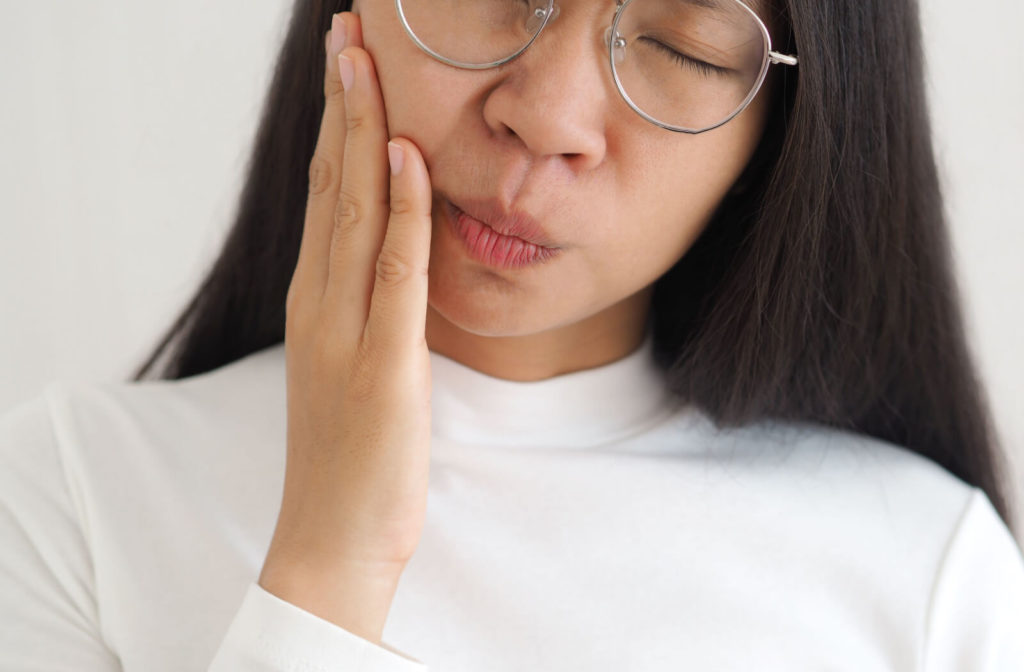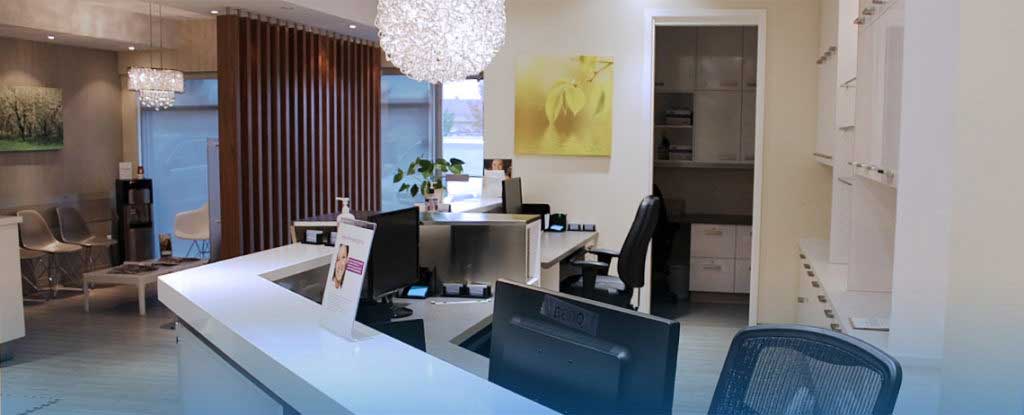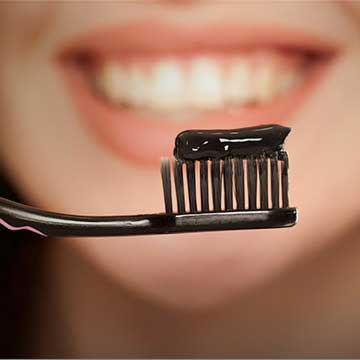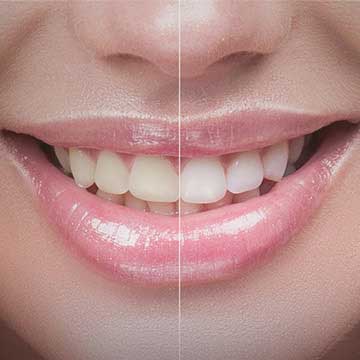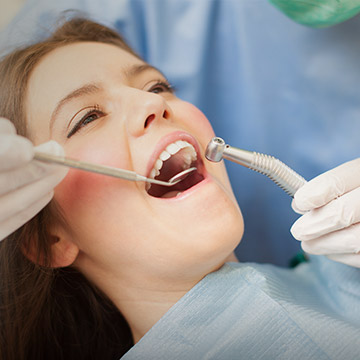We use our facial muscles a lot. Smiling, chewing, laughing, and talking are generally positive experiences, but when you have a jaw disorder like TMJ it can make those everyday things painful. Flare-ups can occur at any point in a day for a variety of reasons, such as the disc in the jaw eroding or from clenching and grinding the teeth.
TMJ pain usually tends to come and go, manifesting as a flare-up that fades away after a few days. People with more extreme cases and persistent pain or swelling may need professional treatment to maintain jaw function and a higher quality of life.
Fortunately, it’s not all bad. There are home remedies and TMJ treatments that can relieve mild to moderate pain, and they can help reduce the number and frequency of flare-ups. These treatments include:
- Hot compresses and cold packs
- Jaw exercises
- Sleep habits
- Staying hydrated
- Avoid chewy foods
- Improving posture
- TMJ Botox treatment
What Is TMJ?
On both sides of your mouth, the temporomandibular joint, or TMJ, connects your lower jaw to your skull. It allows you to move your jaw from side to side and open and close your mouth.
The TMJ can occasionally cause issues that result in severe pain. Temporomandibular disorders, or TMD, are problems with jaw movement and pain in and around the jaw.
You may be experiencing a TMJ disorder if you answer yes to the following:
- Do you have pain radiating from your jaw?
- Do you have difficulty opening and closing your mouth when speaking or eating?
- Do you have frequent headaches or neck pain?
- Do your jaw joints pop or click?
If you’re experiencing these symptoms, it’s important to see your dentist for a formal diagnosis.
Why Do People Get TMD?
A person may develop this condition for a variety of reasons, including:
- The disks in the jaw erode or are out of place
- Cartilage in the joint is damaged by arthritis
- The joint has been damaged by past trauma
- Habitual bruxism, or clenching and grinding of teeth
What Causes a TMJ Flare-Up?
Recognizing and addressing triggers can help you avoid or reduce the severity and duration of TMJ flare-ups. There are several causes of sudden or severe jaw pain, including inflammation and overworked muscles, among others. Keep reading to find out what else might cause jaw pain.
Stress
Stress can cause you to clench your jaw and grind your teeth (bruxism) while awake or asleep. TMD is aggravated by the additional pressure and strain on the TMJ and facial muscles.
Food Choices
Those suffering from TMD should avoid eating too many tough, hard, or chewy foods. Excessive chewing and exaggerated movements can cause pressure and muscle fatigue, which can result in painful flare-ups.
To prevent symptoms from worsening, you can try to eat softer foods, take smaller bites, and avoid chewing gum.
Hormone Levels
According to research, low levels of natural estrogen can cause TMJ inflammation. Hormonal changes caused by birth control pills, which produce synthetic estrogens, may also be involved.
Posture
Poor posture can cause a misaligned spine, causing your lower jaw to protrude forward, and causing excessive tension in certain facial muscles and supporting structures, including the TMJ.
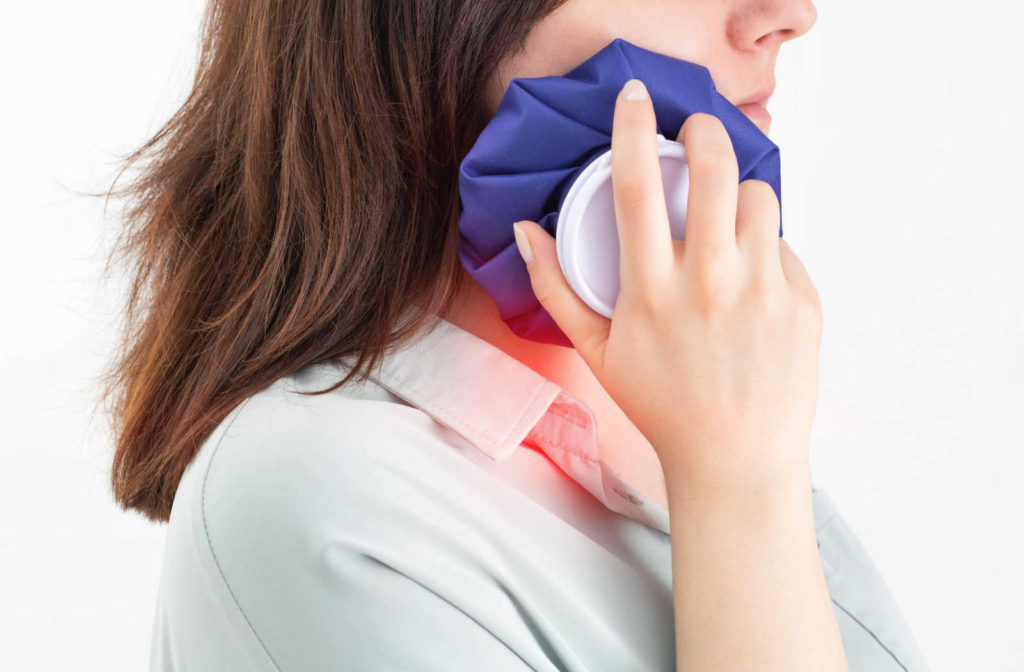
How to Treat a TMJ Flare-up
If you notice a TMJ flare-up, it is important that you take control of the situation and stop the pain as soon as possible. There are a few ways to reduce pain from a TMJ flare-up.
Hot & Cold
Using a heat pack or a cold compress on your jaw can help to relax the tense jaw muscles that are contributing to your flare-up. You can try applying a soft heat pack or rice bag to your face for 5–10 minutes in the morning and evening and alternate with a cold pack as needed.
Jaw Exercises
Jaw exercises can help improve joint mobility. To relieve pain, 3 types of jaw exercises can be used together:
- Stretch exercises
- Strengthening exercises
- Relaxation exercises
Sleep Habits
Sleep is essential for many aspects of health. Try sleeping on your back and using pillows to support your neck to help reduce TMJ pain. Avoid sleeping on your stomach, and if you must sleep on your side, avoid resting your jaw on your hand.
Stay Hydrated
All joints and muscles in the body need proper hydration to maintain lubrication and function. Pain and inflammation of the joints and muscles, including the temporomandibular joint, can happen if you’re dehydrated.
Avoid Chewy Foods
If you’re experiencing TMJ pain, you should steer clear of chewy foods because they can exacerbate discomfort and strain on the temporomandibular joint. These types of foods require excessive jaw movement and can contribute to further irritation and inflammation, prolonging the recovery process and potentially worsening symptoms.
Opting for softer, easier-to-chew foods can help alleviate strain on the jaw and provide relief from TMJ pain.
Improve Your Posture
Sitting in an awkward position for an extended period can aggravate jaw pain. Choose a chair with back support when working and take frequent breaks to improve your posture.
Set your seat as upright as possible while driving, and when doing relaxing activities like watching TV or reading, choose a space that allows you to sit upright and place a pillow behind your back for support.
TMJ Botox Treatment
Botox is a medication that temporarily relaxes muscles while also decreasing pain sensitivity, it can relieve strain and tension in the muscles surrounding the jaw when injected into the major clenching muscles of the face.
Otara Dental offers Botox treatments to help reduce the pain associated with TMJ disorder. If you think this treatment may work for you, or you have any questions about other TMJ symptoms, book an appointment with our team.


